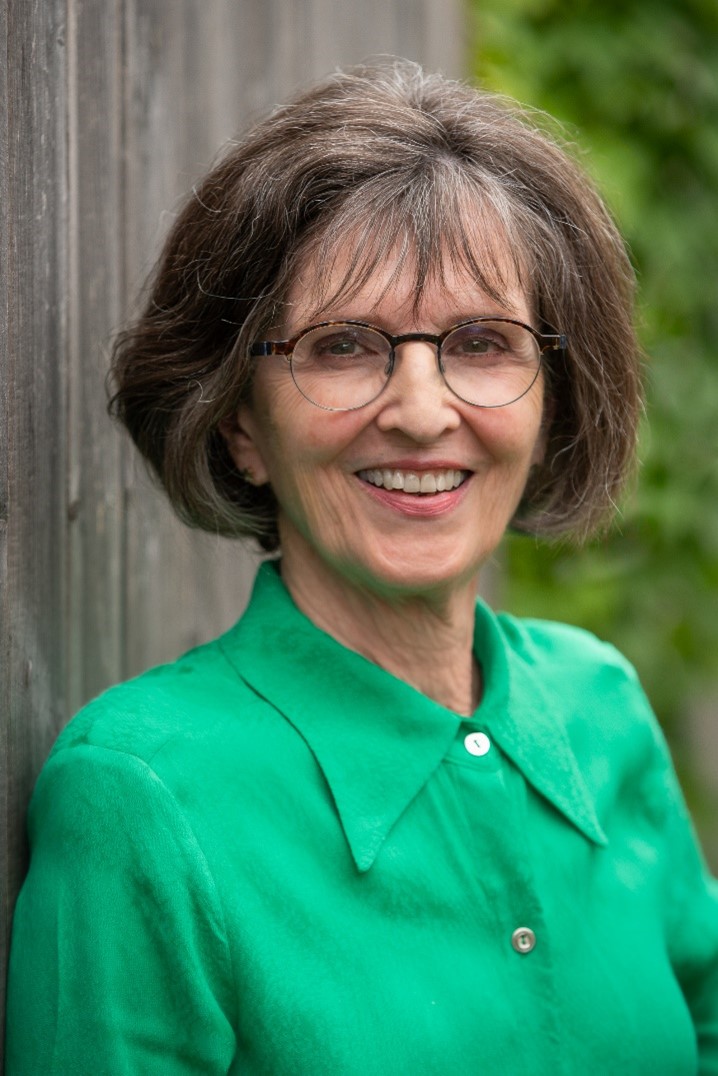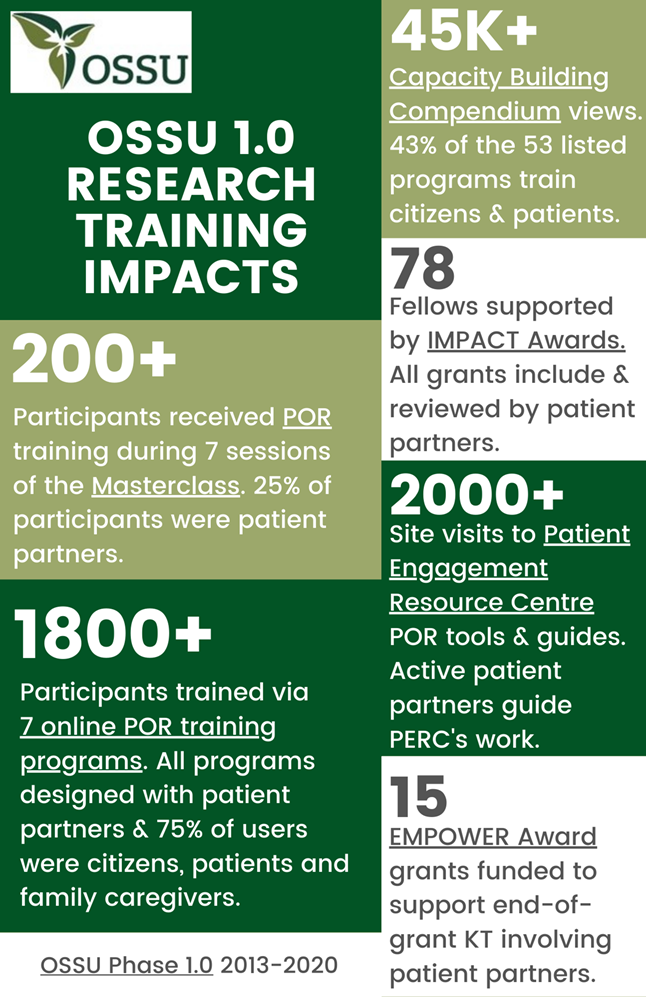It’s in her DNA
Putting patients first has been central to Dr. Moira Stewart’s research ethos. Throughout her 40+ year career as an epidemiologist and research methodologist in family medicine, Dr. Stewart has always focused on patients, and patient engagement.

“Patient-oriented research is part of my DNA,” says Dr. Stewart, Distinguished University Professor Emeritus, Western University and OSSU’s capacity building lead. “In family medicine, we look at the relationship between patient and physician, continuity of care and how conversation is key. That’s all about patient engagement as patients and doctors engage in consensus to find common ground.”
This passion has informed her work at OSSU since she was asked in 2014 to develop capacity building workshops for the network, given her expertise in creating and developing TUTOR-PHC, a national interdisciplinary training program in family medicine research.
For those not in the know, or needing a refresher, Dr. Stewart describes capacity building through the lens of patient engagement in research. Boundaries are important as it’s not about patient engagement in clinical care with hospital patient and family councils (PFACs) but about building patient engagement in research and research uptake.
“Training and capacity building in research is about training everyone and about learning about each other’s worlds. It’s about research, how people can work together so that research has an impact,” she says.
“The patient brings patient expertise; I bring research expertise. It’s a meeting of expertise. How do you ensure the team is successful in deciding the research question, who is involved, how it’s disseminated? The process of collaboration and the meeting of experts is how to describe it.”
She cites the two proudest accomplishments of OSSU: the Masterclass, led by Dr. John Lavis, which engaged more than 200 people, of whom 25% were patient partners, and OSSU’s seven online training programs which were accessed by more than 1800 people, 75% of whom were patients, family members and caregivers. The online programs ensured material on a variety of aspects of patient-oriented research from different perspectives – Indigenous, primary care, child health and more – was accessible to people in Canada and beyond.
“I think the Masterclass is the shining example of OSSU and the seven online programs are the second star in the constellation,” she says.
As she moves into this mature phase of her career, Dr. Stewart wants to nurture the next generation of capacity-building.
Judging by the success of a recent priority-setting online workshop, her efforts are already paying off. Co-designed by OSSU’s Capacity Building Working Group and the Patient Partner Working Group, the event involved more than 60 people, from patients and early researchers to senior leaders and policy-makers. A common theme was how essential it is to ensure equity, diversity, and inclusion in patient-engagement in research, and the need for equal partnerships to address power imbalances.

The future
As we move into the next more mature phase of patient-oriented research, the recently established SPOR National Training Entity (NTE) will build upon the foundation laid by OSSU and SPOR Support Units in other provinces. Funded by CIHR and led by Dr. Annie LeBlanc of Laval University, its network of about 70 co-investigators across Canada will innovate, enhance and coordinate training and capacity development for the country.
“We need more coordination of existing expertise to develop a community of practice and the NTE will fill that gap at the Canadian level,” says Dr. Stewart. The team brings expertise, which combined with training and the ability to engage in communications activities, can support trainees to be effective health researchers and engage diverse stakeholders.
She sees the work of OSSU as important to the NTE, from OSSU’s central training inventory for patient-oriented research to online training modules and is looking forward to representing OSSU in the new entity and continuing to build on success.
It’s her legacy. This is the focus for the next stage of her career: training the next generation or two. “This work fits with my age and stage – I want to give back,” states Dr. Stewart.